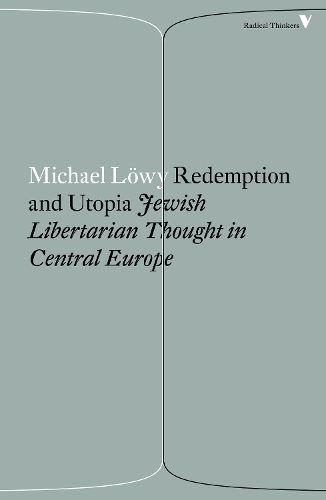Readings Newsletter
Become a Readings Member to make your shopping experience even easier.
Sign in or sign up for free!
You’re not far away from qualifying for FREE standard shipping within Australia
You’ve qualified for FREE standard shipping within Australia
The cart is loading…






Towards the end of the 19th century, there appeared in Central Europe a generation of Jewish intellectuals whose work was to mark modern culture. Drawing at once on the traditions of German Romanticism and Jewish messianism, their thought was organized around the cabbalistic idea of the tikkoun : redemption. Redemption and Utopia uses the concept of elective affinity to explain the surprising community of spirit that existed between redemptive messianic religious thought and the wide variety of radical secular utopian beliefs held by this important group of intellectuals.
The author outlines the circumstances that produced this unusual combination of religious and non-religious thought and illuminates the common assumptions that united such seemingly disparage figures as Martin Buber, Kafka, Walter Benjamin and Georg Lukacs.
$9.00 standard shipping within Australia
FREE standard shipping within Australia for orders over $100.00
Express & International shipping calculated at checkout
Stock availability can be subject to change without notice. We recommend calling the shop or contacting our online team to check availability of low stock items. Please see our Shopping Online page for more details.
Towards the end of the 19th century, there appeared in Central Europe a generation of Jewish intellectuals whose work was to mark modern culture. Drawing at once on the traditions of German Romanticism and Jewish messianism, their thought was organized around the cabbalistic idea of the tikkoun : redemption. Redemption and Utopia uses the concept of elective affinity to explain the surprising community of spirit that existed between redemptive messianic religious thought and the wide variety of radical secular utopian beliefs held by this important group of intellectuals.
The author outlines the circumstances that produced this unusual combination of religious and non-religious thought and illuminates the common assumptions that united such seemingly disparage figures as Martin Buber, Kafka, Walter Benjamin and Georg Lukacs.